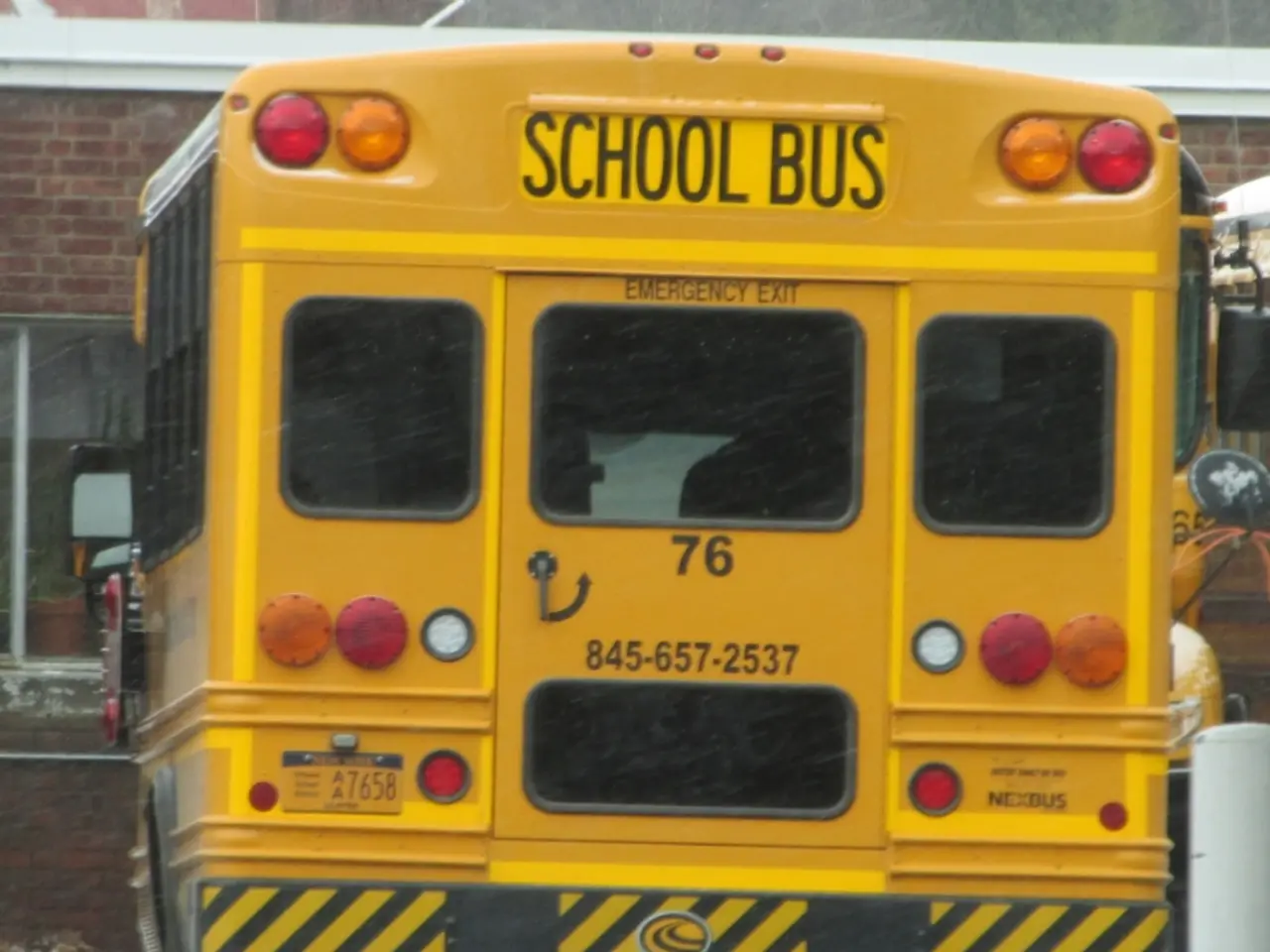Policy Assessment of Educational Strategies: Examining Effectiveness and Pushing for Constructive Amendments
In 2025, the U.S. education policy landscape is marked by a series of contentious decisions that have sparked debate and concern amongst educators, parents, and students alike.
Education policies, designed to provide a framework for educational institutions to follow and ensure that students receive a quality education, have been subject to regular review and revision. However, the current policies enacted in 2025 have raised eyebrows, particularly with regards to higher education content.
Many states have enacted educational gag orders and restrictions that limit what can be taught in higher education, particularly targeting instruction related to race, gender, Critical Race Theory, and diversity, equity, and inclusion (DEI) programs. These restrictions, such as Arkansas' HB 1512, explicitly prohibit concepts deemed "divisive," potentially limiting students’ understanding of complex social issues.
The Trump administration has also intensified efforts to reshape federal education policy. The Department of Education is implementing President Trump's One Big Beautiful Bill Act, aiming to improve post-graduation outcomes, workforce pathways, simplify student loans, and increase accountability in higher education. However, this has led to funding freezes and demands for policy changes at institutions like Columbia and Harvard, with some universities legally opposing these actions.
Moreover, Congress passed a major budget reconciliation bill including the nation's first permanent private school voucher program, offering federal tax credits up to $1,700 for scholarship donations. This program, estimated to cost over $56 billion annually, raises concerns for advocates because it may divert funding away from public education, particularly for students with disabilities who largely attend public schools.
These policies have potential consequences. Restricted academic freedom and reduced diversity in curricular content due to gag orders could limit students’ understanding of complex social issues. Reduced federal support and oversight of public education programs, especially special education, due to funding shifts toward private vouchers could exacerbate existing disparities. Heightened politicization and legal conflicts between universities and the federal government over funding and curriculum controls could impact institutional autonomy and research innovation.
However, advocacy for positive policy changes is crucial. Proposed changes should be carefully analyzed for their potential consequences, considering their impact on students, educators, administrators, and the overall education landscape. The advocacy for positive policy changes aims to enhance the overall education landscape by promoting a more holistic, inclusive, and effective education system.
Advocates are calling for transparent, equitable federal policies that support all students, simplify loan repayment without undermining borrower protections, and encourage workforce-aligned education pathways. They are also supporting universities' legal challenges to overreach by administrative demands perceived as ideological impositions, to preserve institutional independence and diversity.
In addition, there is a push to protect academic freedom and oppose gag orders that curtail instruction on race, gender, and history. There is also a call for restoration and enhancement of public education funding, particularly under the Individuals with Disabilities Education Act (IDEA), to counterbalance voucher expansions.
Working together towards positive policy changes can help create a brighter future for education. By analyzing the impact of education policies, valuable insights can be gained into their effectiveness and areas where improvements can be made. The goal is to create an environment that fosters learning, growth, and success for every individual.
[1] Arkansas HB 1512 [2] Columbia University's Lawsuit Against the Department of Education [3] RISE and AHEAD Committees [4] Budget Reconciliation Bill [5] Harvard's Legal Opposition
- The ongoing debates about education policies in 2025, particularly Arkansas' HB 1512 and Columbia University's lawsuit against the Department of Education, highlight the importance of maintaining academic freedom and supporting a holistic education that includes discussions on race, gender, and history.
- Advocates for education and personal growth are urging for the protection of learning environments, calling for transparency in federal policies, preserving institutional independence through the support of committees like RISE and AHEAD, and enhancing public education funding under the Individuals with Disabilities Education Act (IDEA), to foster a learning-centric education system that promotes education-and-self-development and personal-growth.




